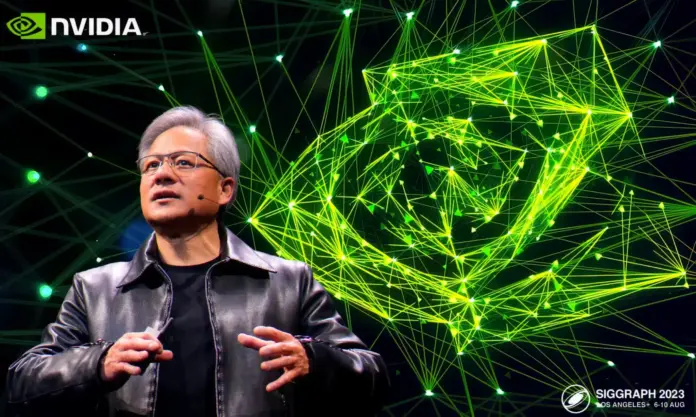Revolution in the gaming industry: By 2030, the way games are made is set to change from the ground up – at least according to Nvidia CEO Jensen Huang
The way games are made could be turned completely on its head in the future – at least if Nvidia CEO Jensen Huang has his way.
Not surprisingly, AI plays the main role, as new statements from Huang confirm.
Generate instead of render: Things are set to change by 2030
Jensen Huang already made a bold prediction last year at the GTC Conference 2023:
“Every single pixel will soon be generated. Not rendered: generated. “
In other words, according to Huang, GPUs will no longer render game environments in the traditional way, but will generate them using AI – and in real time. This means that entire maps, textures, NPCs and much more could be created while you play
Why is this important now of all times? At this year’s GTC Conference, which took place from March 18 to 21, a former Google employee Bilawal Sidhu asked the Nvidia CEO a question about this.
He wanted to know how far away we are from every pixel being generated in real time:
I asked Jensen about his iconic AI prediction:
‘How far are we from a world where every pixel is generated at real-time frame rates?’
Jensen thinks we’re ‘5-8 years away’ and is already seeing signs of traversing the S-curve of innovation.
The entire gaming and simulation… pic.twitter.com/mfAUb9rkMh
– Bilawal Sidhu (@bilawalsidhu) March 19, 2024
Huang’s answer translatesas: In five to eight years.
However, developments in this direction will become apparent earlier and part of the way is already behind us, as Huang makes clear in the following quote.
“In five years, you’ll probably be in the middle of the time where everything is changing in real time and everyone is saying, “Oh, look at this, this is happening right now”. So you have to ask yourself: have we already been in this ten-year window for two years? We’ve probably been at it for two years. So I would say that it will largely be the case in the next five to ten years, somewhere in between. “
In short: In five to ten years, games, or at least parts of them, will be generated in real time without a developer having thought them up beforehand.
What consequences would this have for the games industry?
The consequences of such a development are difficult to assess, but we assume that they would be serious.
Attention: Please bear in mind that the developments in the games industry described here are only speculations that may occur, but are far from certain.
- Game developers would have to adapt to new ways of working in which content is no longer just created, but also generated by AI.
Q
- Players can look forward to unprecedented depth and dynamics in their games, for example through spontaneously generated quests or NPCs with individual parameters.
- Gaming platforms such as Steam could be flooded with inferior games. This is already a problem today!
- jobs at developer studios could be cut as fewer people are needed to create assets.
There are already plenty of signs of rapid development of AI features in the gaming sector, for example from Nvidia itself in relation to NPCs or in the form of a monster that learns to hunt you better in the right game via a neural network.
Although Huang’s visions are still speculative and pose a number of challenges – including ethical questions about copyright and potential job losses – one thing is certain: AI will become increasingly important and powerful in the coming years, including in games.


